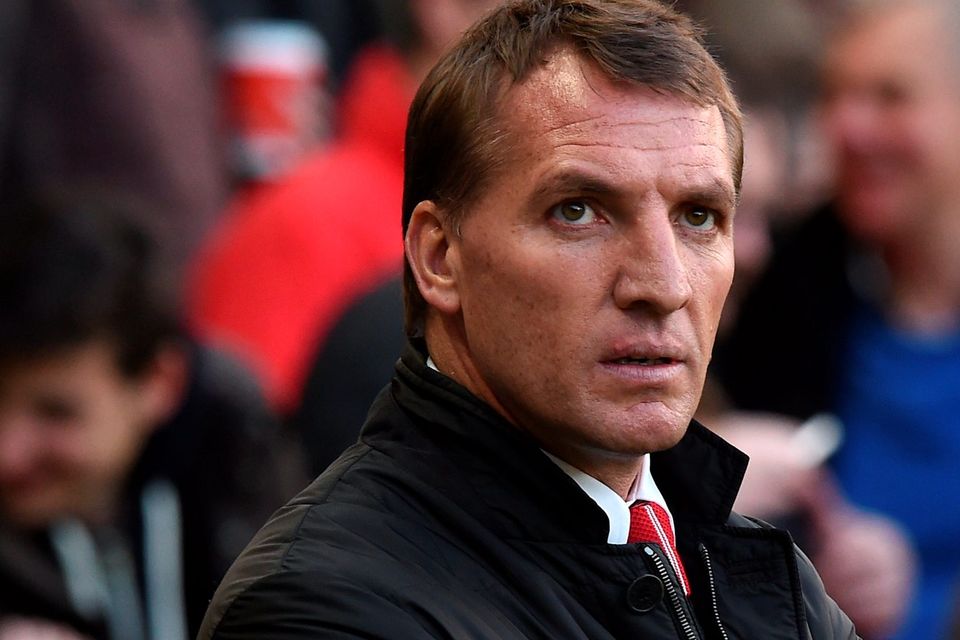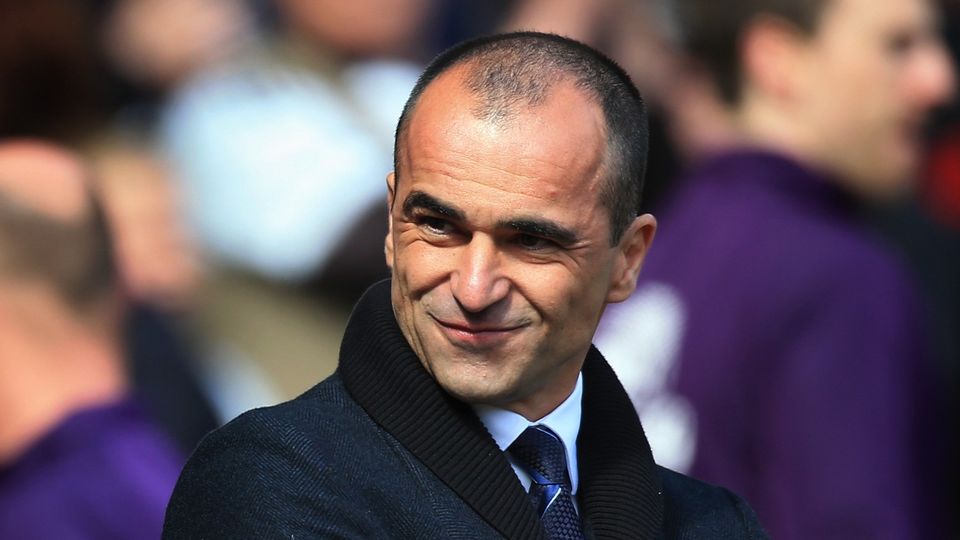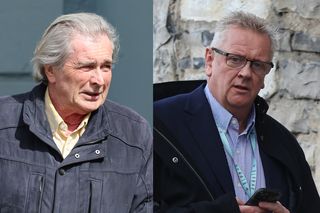Liverpool's Brendan Rodgers faces the toughest task
Of all Premier League managers, Liverpool's Brendan Rodgers faces the toughest task
Apart from being well rewarded, bosses in England are generally well treated, such as Brendan Rodgers
The Premier League may no longer boast the quality on the pitch it once did - Champions League results and transfer valuations strongly suggest the top of the Spanish and German leagues is now where it is at - yet, oddly enough, England is acquiring real gravitas in the technical areas.
Jose Mourinho and Arsene Wenger, whose trans-London rivalry is back on, have long been considered among the sharpest and brightest coaches in Europe. Opinion on Steve McClaren is more divided, though, with the former England manager now in charge at Newcastle, and his sometime nemesis Slaven Bilic installed at West Ham, five Premier League clubs are now being managed by coaches who have been in charge of national teams.
That figure will rise to six should Guus Hiddink become the latest Dutch master to end up in this country. Leicester are understood to be keen on the well-travelled 68-year-old and, as with Dick Advocaat at Sunderland, retirement becomes a less attractive option when your friends and contemporaries are extending their careers in England.
Advocaat and Louis van Gaal have already made it clear that Sunderland and Manchester United respectively will be their last jobs. Ronald Koeman has a few more miles left on the clock, but Hiddink, although the oldest of the quartet, could be the shrewdest capture of the summer.
Even at 68, managers with a treble on their CV should never be lightly dismissed, and Hiddink's last spell in charge of an English club was certainly interesting. Taking over Chelsea following Luiz Felipe Scolari's mid-season dismissal, and before the pre-arranged arrival of Carlo Ancelotti, Hiddink reorganised a dispirited team to the extent of winning the FA Cup, and would have led them to a second successive Champions League final but for the unimpressive refereeing of Tom Henning Ovrebo in the 2009 semi-final against Barcelona. Chelsea were robbed in the second leg, no question about it.
Life after Abramovich
History repeated itself as Grant joined Portsmouth as director of football in October 2009, once again becoming manager less than two months later. Boosted reputation by leading side to the FA Cup final despite administration saga that saw them relegated. Resigned and joined West Ham but was sacked after they were also relegated.
Under Avram Grant the previous season, they had reached the final in Moscow, only to lose to Manchester United on penalties. United were unable to get anywhere near Barcelona in Rome in the 2009 final, and the possibility exists that they would have found the going just as hard against Hiddink's Chelsea.
It was a matter of regret, the Dutchman said in his farewell speech at Wembley, that he never had the chance to take on the English champions.
Hiddink took over at Stamford Bridge just after Chelsea had lost 3-0 at Old Trafford in the second league meeting of the season, was denied an FA Cup final meeting when Alex Ferguson's decision to field a weakened team backfired in the semi-final against Everton, and, most cruelly of all, was frustrated by official incompetence after doing enough to put out Barcelona over two legs in Europe. Barcelona won the treble that year, arguably the greatest achievement of Pep Guardiola's coaching career, yet it could all have been so different.
Guardiola himself could be in the Premier League before long, although his interest in the Manchester City project never seems quite as firm and uncomplicated as the club's admiration for him, by which time the rest of the world will be wondering what it is about the money-drenched English set-up that attracts all the best managers.
Apart from being well rewarded, managers in England are generally well treated. Manuel Pellegrini would have been sacked by a Spanish club by now, Wenger would never have been allowed a 10-year barren stretch, while Brendan Rodgers would have paid the price for Liverpool's evident regression last season.
Yet it is simply not the case that the Premier League is turning into a pleasantly comfortable retirement home: it is still an unforgiving environment for managers. Seven of the clubs finishing in the bottom half of the table last season changed their manager mid-term or mid-summer. Two of the ones that did not - Hull and Burnley - were relegated anyway.
Everton manager Roberto Martinez welcomes Burnley to Goodison this weekend
Roberto Martinez is the only manager who started the season who survived a bottom-half finish outside the relegation places while, across Stanley Park, Rodgers can congratulate himself on being second only to Wenger in terms of longevity, even as some supporters are disparaging him for becoming the first Liverpool manager in half a century to fail to win anything in his first three seasons at the club.
In terms of prominent English managers, now Harry Redknapp and Sam Allardyce are nowhere to be seen, Alan Pardew is the nearest to an experienced old hand, with Garry Monk the highest finisher. McClaren might have England experience but, like Tim Sherwood and Eddie Howe, he still has something to prove at this level of club football.
As ever, the three managers of the newly promoted teams will have the most thankless jobs, although the new model for success at the bottom end of the table seems to be to find a good manager and stick with him, regardless of results. Howe or Alex Neil might be able to survive a relegation if the team acquits itself well and the club decides to pursue a sensible financial policy instead of gambling large amounts of money in an attempt to stay up.
The defining characteristic of the Premier League is that most clubs are happy to be in it. Look at the gratitude heaped on Advocaat and Sherwood for what constituted fairly minimal improvement at the end of last season.
Everyone aspires to the Champions League - the Europa League perhaps not so much - but everyone also knows that two Manchester clubs and two London clubs will most likely take the top four places.
That leaves Merseyside, most notably, on the outside looking in. Martinez at least left himself some room for improvement by finishing 11th last season; it is Rodgers who appears to be under most pressure to deliver, partly because he took Liverpool so close in 2014. Trying to recreate all that without Luis Suarez and now Steven Gerrard, with Daniel Sturridge under an injury cloud and Raheem Sterling proving difficult, is no picnic.
Anywhere else in the Premier League, almost any sign of progress can be welcomed and regarded as success. Yet it is more strictly defined at Liverpool, and up on the celebrated perch at the moment are Chelsea, City and Arsenal, not just Manchester United. It is a good thing Rodgers enjoys his work, or says he does, because his just might be the hardest task of all.
Observer
Read more:
Read more:
















